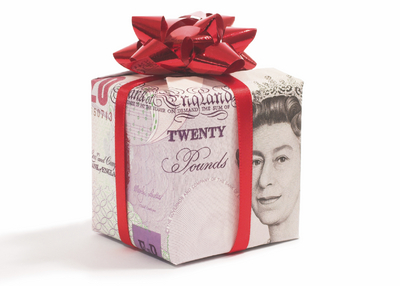An ’emergency fund’ is one of those things that sounds great but for many of us it is a difficult thing to achieve.
 If you don’t have the money to pay your bills each month, then your financial situation is getting worse month on month so putting money aside for an emergency doesn’t seem right because every month is an emergency!
If you don’t have the money to pay your bills each month, then your financial situation is getting worse month on month so putting money aside for an emergency doesn’t seem right because every month is an emergency!
If this is you right now, take a few minutes to get everything you owe down on paper and look up and write down the minimum payments required for each debt and bill. If you can’t meet the minimum payments you need to find ways to increase your income or ask for help.
If you foresee this money situation as only very temporary it can make sense in some circumstances to take out a short term loan like those at MrLender.com. These can sometimes be cheaper than overdraft fees, and even if it is an expensive option, if you are willing to accept the price of borrowing money, they can be very helpful in a pinch. You should understand that a loan is simply renting money. It has a cost but everyone pays for things they need and want if they value them – and paying for money with money is the same thing. Turning to an instalment loan provider should also motivate you to build up an emergency fund so you can avoid needing to borrow more money in the future.
If you can make minimum payments and still have money to spare:
If, once you’ve done the above exercise, you find you can afford the minimum payments on all your debts and bills, then now is the time to only pay the minimums and put every penny extra you can into a new ‘emergency fund’. You might be tempted to put the money towards your debt to save paying so much interest but this would not be wise – without a financial buffer in place in the form of an emergency fund there’s more of a risk of going deeper into debt when the next emergency comes along. By building up a small amount of savings, despite your debt, you’ll have money to solve future problems and break the habit of simply taking out more debt to get by.
 Seeing a slowly building pile of money is also really encouraging and empowering. Believe me, as it grows you will be spurred on to contribute more to it to see it get bigger!
Seeing a slowly building pile of money is also really encouraging and empowering. Believe me, as it grows you will be spurred on to contribute more to it to see it get bigger!
But don’t save too much –you still have debt to pay off.
Once you’ve saved a few hundred pounds, keep it separate from your other money and make a vow to yourself to only use it in real emergencies. Now that you have established a habit of saving you can stop growing your emergency fund and instead put the money you were saving, back into debt repayment above the minimum amounts you have already been paying. Start with either the lowest balance or the highest interest rate and start chipping away at your debt. Over time you’ll see the debt reduce and will finally feel hope returning to your life! Once that first debt is paid off you can start on the next one and you’ll be paying off more per month as you no longer have the minimum payment on the first debt.
Within a few months of being intentional about paying off your debt you’ll finally be free of it.
Good luck.
You must log in to post a comment.